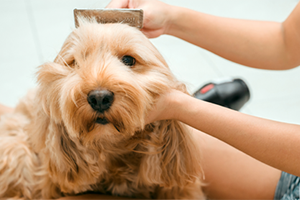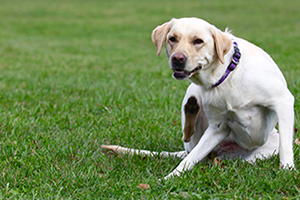
Beagle

A loving family companion always keen to be part of the action
Vital stats
Swipe to view more
| Size: | Small to medium |
| Coat: | Short and glossy, requires weekly grooming |
| Exercise | 2+ hours a day |
| Life span: | 9+ years |
| Temperament: | Intelligent, friendly, excitable |
Beagle temperament & personality

Beagles are adaptable, versatile dogs with loving, curious natures
- Ideal for first time owners.
- Even-tempered, curious and keen to be part of the action.
- Owning a Beagle is great fun, as they are sociable and mischievous, and their natural desire to please makes them easy to train.
- They get on well with other pets and people but may need some supervision when playing with small children, as they can get carried away with playfulness.
Beagle training & exercise

Training tips
- Start training at 3 to 6 months old.
- Socialise Beagle puppies from an early age by introducing them to as many new people, dogs and experiences as possible.
Exercise
- Puppies need short sessions of daily playtime and walks to protect their growing joints and bones.
- Fully grown Beagles need at least 2 hours of exercise a day.
- Watch out for signs of tiredness such as excessive panting or thirst.
Keeping them happy
- Beagle love attention. If they are alone, leave some games for them to keep them entertained or have someone check in on them.
- Naturally Beagles have a strong impulse to bark and can be very noisy. Good training and age-appropriate play will keep this in check but this can’t be trained out completely.
Game ideas
- Allow lots of time for sniffing!
- Try a game of hide and seek – hide their favourite toy and let them sniff it out.
Common Beagle health conditions

Beagle grooming

Beagle grooming is low-maintenance, as their fur is short and waterproof, providing protection from the elements.
- Beagles commonly have mottled coats, with a mix of white, black and light brown colours throughout.
- Whilst a Beagle’s coat is easy to clean and care for, they should still be groomed at least once a week.
- Grooming can be a good time to check your dog for any lumps or signs of parasites, as well as their ears for signs of infection such as brown or black wax and a strange smell.
- It’s also important to brush your Beagle’s teeth regularly to reduce the build-up of tartar, and prevent gum disease and bad breath.
Beagle nutrition

Vets recommend that the best food for Beagles is a high-quality pet food.
- Beagles can be prone to putting on weight, so keep an eye on portion sizes!
- Beagle puppies occasionally have tummy trouble so stick to a fessing schedule and good daily routine to avoid mishaps.
- Introduce new foods with small portions and slowly increase whilst decreasing previous food to help avoid problems.
What to know before you buy or rehome a Beagle

Considering welcoming a Beagle into your home? Before you buy or adopt one, here are a few important things to remember.
- Beagles’ friendly and outgoing nature makes them great family pets, but they can be boisterous so, like all dogs, it’s wise to supervise them around small children.
- Beagles are eager to please and highly intelligent so will love plenty of training and mental stimulation.
- Sociable by nature, Beagles get on well with other dogs and can get on with cats as well, but their hunting instinct means care should be taken if you have smaller pets.
- Friendly and fun, Beagles love other people, but they can be very vocal if not well socialised from a young age.
- Choose a licensed and reputable Beagle breeder if you’re buying a puppy. ‘Lucy’s Law’ dictates that new puppies or kittens must be bought directly from a breeder or adopted from rescue. Third party sellers are illegal.
- Like all dogs, Beagles can suffer from a range of health conditions so always look carefully at the veterinary cover provided when shopping around for pet insurance as not all policies are the same.
Beagles frequently asked questions
Discover some of the most popular dog breeds
Beagle insurance considerations
We always offer these things as standard:
Physiotherapy & pet therapies
Along with physiotherapy, which is covered within the Vet Bills benefit, we also cover Pet Therapies like herbal medicine, homeopathy and acupuncture. You can also claim for hydrotherapy, up to £500 per illness/injury in dogs and cats (no additional limit for rabbits).
Petplan is a trading name of Pet Plan Limited (Registered in England No. 1282939) and Allianz Insurance plc (Registered in England No. 84638), Registered office: 57 Ladymead, Guildford, Surrey GU1 1DB.
Pet Plan Limited is authorised and regulated by the Financial Conduct Authority. Financial Services Register No. 311969. Allianz Insurance plc is authorised by the Prudential Regulation Authority and regulated by the Financial Conduct Authority and the Prudential Regulation Authority. Financial Services Register No. 121849. Pet Plan Limited is a subsidiary of Allianz Insurance plc.














































